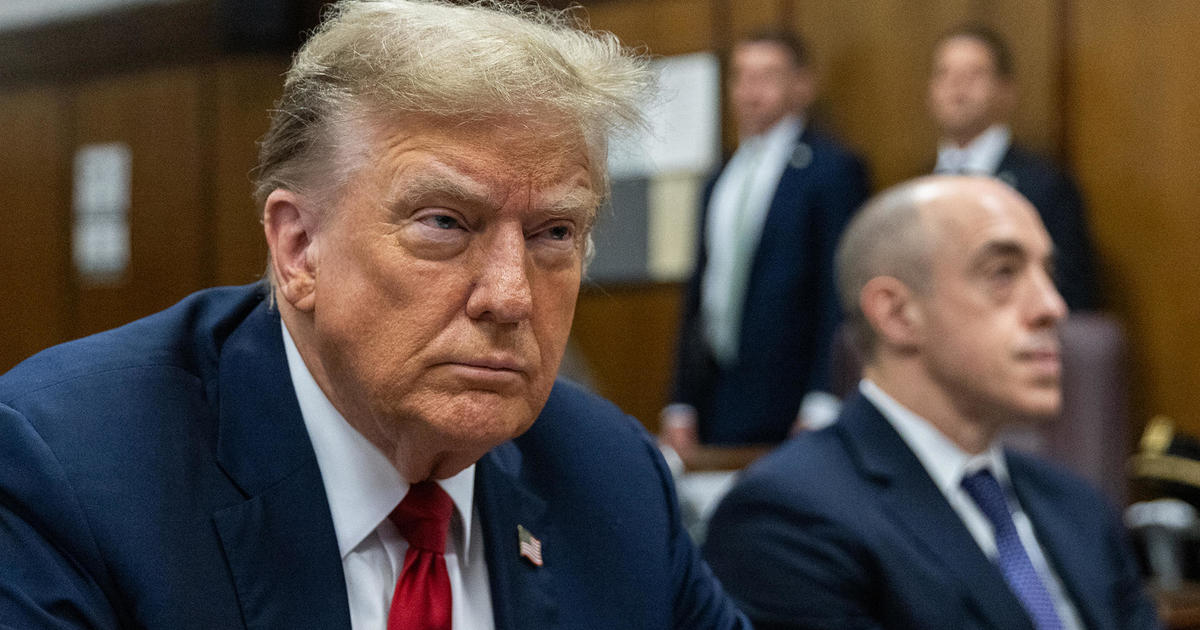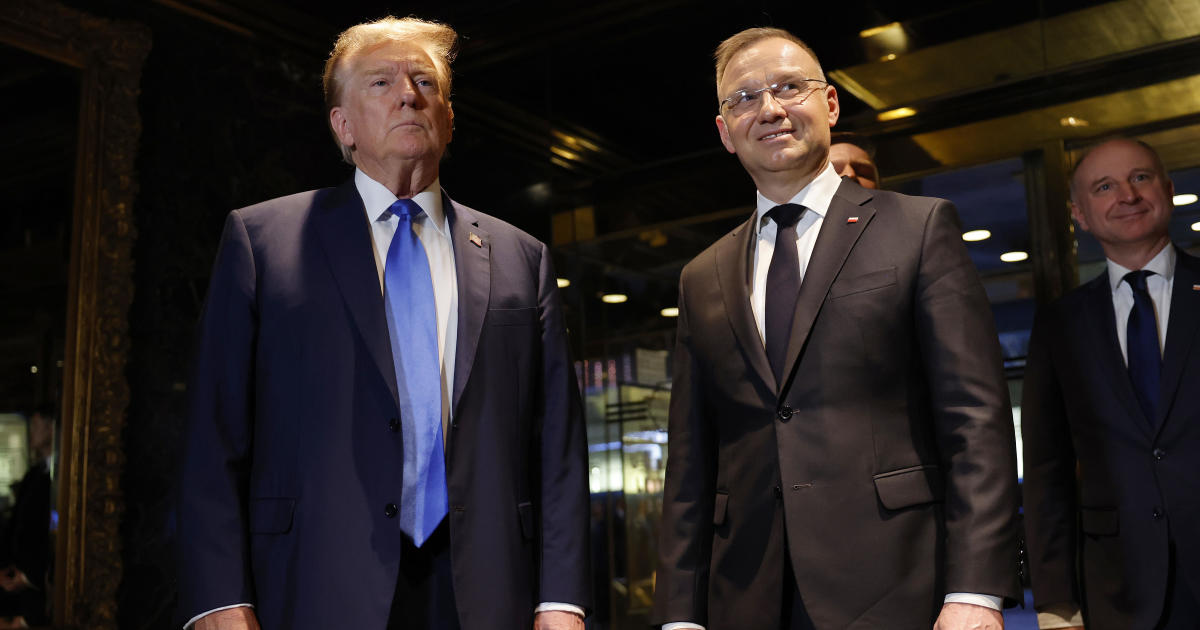What could brake the Trump rally on Wall Street
The Trump rally rolled on Friday as stocks hit new records. But now skepticism from noted investing sages is beginning to be heard, a discordant undertone to the market’s celebratory music.
Much of it is concern over whether President Donald Trump can make good on his campaign promises to juice the economy through lowered taxes, lighter regulation and ambitious new infrastructure spending to repair decrepit bridges, highways and the like. If he falls short, the reasoning goes, the market may suffer.
The investor euphoria that Mr. Trump’s election touched off -- the S&P 500 has climbed more than 8 percent since his victory -- has yet to abate. On Friday, all three major indexes hit new highs, after the president announced he would unveil his tax plan in the next few weeks, and corporate earnings reports were robust.
Certainly, there’s still a solid bullish case to be made. With unemployment below 5 percent, consumer confidence high and wages growing (although not at a great rate), the ingredients are still in hand for continued upward pressure on stocks. The American Association of Independent Investors survey last week found that 35.8 percent were bullish, up 3 percentage points from the week before, versus 27.7 percent bearish, down 6.5 points.
Nevertheless, some fear that the momentum can’t be maintained, in light of Mr. Trump’s focus on matters they deem of secondary importance, such as blocking immigration from seven Muslim-majority nations and talk of imposing punitive tariffs on trading partners, at the risk of sparking a ruinous trade war.
“The Trump Agenda presents risks in both directions; tax cuts and infrastructure funding could boost growth but could be offset by the negative effects of restrictions on trade and immigration,” a note from Goldman Sachs (GS) economists read. “One month into the year, the balance of risks is somewhat less positive in our view.”
Larry Fink, chief executive of BlackRock (BLK), the world’s largest money manager with $5 trillion, sounded a downbeat note on Wednesday, saying, “I think markets are ahead of themselves.” Speaking at a forum held by the Yahoo Finance website, Fink said his outlook was torn between positive and negative, leaving him “confused,” even “bipolar.”
To Fink, a member of Mr. Trump’s economic advisory council, there’s reason for worry in the nation’s tepid capital spending growth -- the fuel that drives improved productivity and ultimately economic expansion. “Most businesspeople are not investing today,” he said. “They’re waiting to see what may happen. I believe we’re in the midst of a slowdown as we speak because of all the uncertainty.”
This is a valid point. As Alliance Bernstein noted, business spending on plants, equipment and other productivity-enhancing assets collapsed in 2016. Much of that was due to the slump in oil prices, which led energy producers to stop buying more drilling rigs and storage tanks. Now that oil prices have recovered, oil capital outlays are also on the rise.
Still, as the asset management firm pointed out, “Corporations seem to have consciously decided to extend the useful life of their existing equipment instead of buying new models.” While that situation may improve this year, institutional leeriness leftover from the Great Recession may act to keep it down.
While Mr. Trump’s ambitious economic growth plans would seem to be a potent antidote to this trend, the big unknown is whether he can deliver them -- and if he can avoid stepping into problem areas like a trade mess. The so-called Trump bump is just the latest chapter in the bull market that started in March 2009, at the low point after the financial crisis. At 7.8 years, the current bull run is far from the longest (that would be the 15.1 years after World War II), and bull markets don’t die of old age.
But they can die from policy mistakes. The worries center on these possible obstacles:
Failure to deliver on campaign promises. A big reason Mr. Trump won the White House is his avid fan base, which believes he can restore faster economic growth, bring manufacturing jobs back from overseas and rejuvenate torpid pay gains. But as Mr. Trump is finding out, Washington in general and Congress in particular aren’t built to move at a rapid clip. Will the president’s supporters be patient?
Jeffrey Gundlach, head of DoubleLine Capital in Los Angeles, has his doubts. As Gundlach, who predicted a Trump victory a year ago, told Barron’s 2017 Roundtable, “Many people who voted for him think something is going to change for them. They expect their wages to rise and America to be ‘great again.’ What will happen in July or August if nothing has changed?”
The upshot will be a market that will finish down for 2017, he said.
Obamacare crowd-out. One of the biggest impediments would be that Mr. Trump’s economics agenda would get sidelined over an Obamacare fight. A president has a finite amount of political capital to spend on legislative proposals. Barack Obama’s key legislative achievement was pushing through the Affordable Care Act, and now congressional Republicans, emboldened by the election, are determined to uproot it.
This emotional issue could delay initiatives like tax reform, skeptics fear. Already, Republicans are wrangling about just how to deal with the ACA without yanking coverage from 20 million people or axing the popular ban on insurers refusing to write policies for those with preexisting medical conditions.
That could end up as bad news for Mr. Trump. Indeed, House Speaker Paul Ryan, a Wisconsin Republican, is opting to handle Obamacare before anything else. “We feel the need to rescue this system here, and that’s why we’re going with health care first, that’s the first budget,” he said. “And then in the spring we’re doing the second budget. That’s where tax reform comes.”
The irony here is that Mr. Obama expended much of his political capital to push through the ACA in 2009 and 2010. Some Democratic critics believe he should have concentrated on a bigger economic stimulus plan instead, thus forestalling the rise of the ACA-loathing Tea Party and benefiting white working class people who ended up going for Mr. Trump in 2016.
Choosing the ACA as the initial battle, according to a Barclays research note, could mean “comprehensive tax reform is delayed into 2018.” Goldman Sachs economists concur, writing: “The recent difficulty congressional Republicans have had in moving forward on Obamacare repeal does not bode well for reaching a quick agreement on tax reform or infrastructure funding.” That should leave the S&P 500 where it is today, they said.
Unrest over the president’s M.O. Mr. Trump’s tendency to pick fights with numerous perceived enemies and his thus-far messy policymaking procedure -- the immigration ban was vetted without his Department of Homeland Security secretary’s input, for instance -- could thwart his ability to get things done.
As Oxford Economics put it: “Given the incoming administration’s unusual inexperience in policymaking, there is a larger-than-usual risk of a trial-and-error presidency. Indeed, if the past few days are any indication of what the future holds, we believe there is a general under-estimation of the economic risks to U.S. activity.”
Interest rate drag. Finally, the Federal Reserve is intent on raising its benchmark rate three times this year, barring any economic catastrophe. While rates still would be historically low, it’s also true that rising rates can act as a brake on economic growth. “Higher earnings and high interest rates are yin and yang,” Oscar Schafer, chairman of New York’s Rivulet Capital, told the Barrons’ Roundtable. “It could be a tough year for the market” as a consequence.
Just the same, experts’ forecasts are hardly a rock-solid guarantee. Prior to the election, many analysts believed U.S. stocks would decline if Mr. Trump won. Macroeconomic Advisers predicted an 8 percent drop, for example.
The question now is: Will Donald Trump confound the nay-sayers again?



